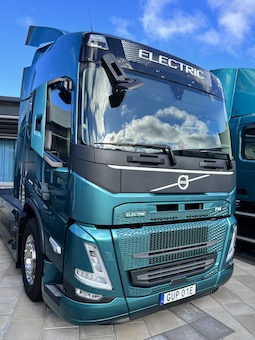Scottish Forestry is investing £2 million towards timber transport projects across Scotland.
“The funding will help decarbonise the forestry sector and reduce the impacts of timber lorries on communities and the environment,” said Scottish Forestry.
“As part of the timber transport boost, Scottish Forestry has confirmed continued funding of £1.2 million for projects including TimberLINK, other road improvements, the three-year electric lorry trial and Timber Transport Forum project officers.
“Around £800,000 of the funding is to kickstart bids for new projects from local authorities and landowners, who have until 21st March 2024 to submit their plans. ”
Announcing the Strategic Timber Transport Fund support, Rural Affairs Secretary Mairi Gougeon said: “Providing support to the forestry sector to help get its timber to market in a sustainable way is an important investment for the longer-term.
“We are focussing the funding towards projects that contribute towards Net Zero by promoting a modal shift in timber transport, whilst also ensuring rural communities and other road users benefit at the same time.
“With funding for new project proposals now open, I would encourage local authorities and woodland owners to work up their plans and apply before the deadline.”
Neil Stoddart of Creel Maritime Ltd, who is managing the three-year electric lorry trial said: “The Net Zero EV HGV demonstrator project has successfully proven both the abilities and also highlighted the challenges associated with transitioning to alternative fuels in the forestry sector.
“To date, the two trial vehicles are performing well and after some teething problems with charging infrastructure, have now settled into robust work patterns – delivering goods and information for the project.”
Aurelia Peddie, Commercial and TimberLINK Manager with Associated British Ports, said: “TimberLINK has gone from strength to strength in recent years with the 2,000 tonne MV Runner, chartered by Associated British Ports, shipping in excess of 70,000 tonnes of timber last year.
“This is good news for decarbonisation and of course the environment as using the ship to transport timber, instead of lorries, avoided around 42,000 tonnes of harmful CO2 being used.
“I would also highlight the value of this project in providing a focus for a range of stakeholders across the forestry supply chains, including the maritime sector, to work together and collaborate towards a more sustainable future.”
